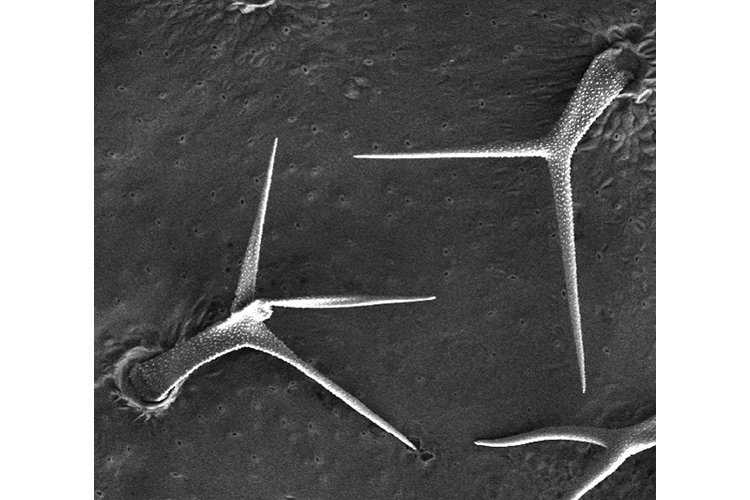UK research shows cuticle regulates salicylic acid in plants
UK research shows cuticle regulates salicylic acid in plants

A University of Kentucky research team led by plant pathologists Pradeep Kachroo and Aardra Kachroo have discovered that the plant hormone salicylic acid moves throughout the plant to activate broad spectrum disease resistance.
In a study recently published in the academic journal Science Advances, the Kachroos’ prove that the movement of salicylic acid is essential for systemic disease resistance in plants, disproving a long-accepted claim.
“For nearly 25 years, scientists presumed that salicylic acid was not a mobile chemical, but our study shows that its movement through the plant is in fact very essential for plant disease resistance,” said Pradeep Kachroo. “Scientists can use this knowledge to develop better ways to use the chemical to protect crops against diseases.”
The Kachroos’ research teams showed that the plant cuticle, a protective waxy film that scientists previously thought served only as a barrier from the environment, actively controls the chemical as it moves throughout the plant. The pH- and carrier-dependent transport of salicylic acid was already known in humans. The Kachroos’ study shows this type of transportation of the chemical likely occurs in plants too. Humans have used this chemical and its derivatives for medicinal purposes for centuries. Today, salicylic acid is the most widely consumed drug under the trade name aspirin.
In addition, the Kachroos’ study show the initial movement of salicylic acid into the plant cuticle appears to be associated with the plant’s water usage efficiency, which is essential for the plant to regulate water loss through transpiration and its ability to tolerate drought.
“Scientists have already developed ways to harness the water-repellent properties of the plant cuticle into many commercial purposes,” said Aardra Kachroo. “Our finding that the cuticle also stores and controls chemicals like salicylic acid could further increase the development of commercial products based off of it.”
Members of the Kachroos’ research teams involved in the project include lead author Gah-Hyun Lim, Huazhen Liu, Keshun Yu, Ruiying Liu and M.B. Shine. Other UK contributors include Justin K. Moberly in the Department of Chemistry and Nicholas McLetchie in the Department of Biology. Additional authors are University of Tennessee scientists Jessica Fernandez and Tessa Burch-Smith.
Sciences Advances is a journal of the American Association for the Advancement of Science. The Kachroos’ entire journal article is available online at https://advances.sciencemag.org/content/6/19/eaaz0478/tab-article-info.
Research


